How to Use a Weekly Review to Boost Your Productivity
A weekly review can be a valuable tool to help boost your productivity. The purpose of the review isn’t to try and fit more into your schedule. It’s about figuring out what is and isn’t working for you.
Do you ever find yourself looking at your planner at the end of the week and wondering where the time went? Or why you weren’t able to get as much done as you wanted to?
I’ve been there, a lot!
A few months ago I started using a weekly review in an attempt to figure out what was going on with how I was spending my time. Today, I’m sharing how to use the review to make managing your time easier and more effective.
Keep reading to find out how a weekly review can boost your productivity
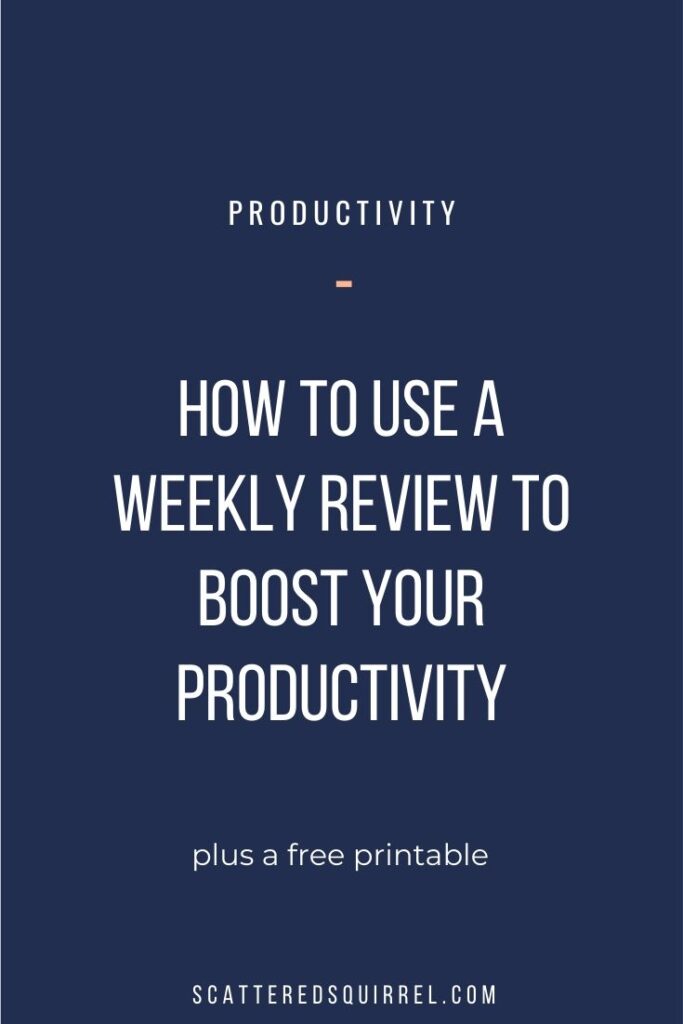
What Purpose Does a Weekly Review Have
Do you remember being in school and learning about trial and error?
This is sort of like that. We can’t always predict what will work well for us the first time. The weekly review is an evaluation tool to help determine if what we tried worked or if we need to make some changes and try again.
Being able to evaluate how we’re spending our times allows us to find the problem areas and the areas that are running smoothly. In turn, we can then focus our energy where it’s needed.
When done over time a weekly review can also start showing you patterns. There might be a certain kind of task you always procrastinate doing or you might find that some tasks are always easier for you if you do them at a certain time of the day.
How to Use a Weekly Review to Boost Your Productivity
A review can help you identify areas you’re struggling with and brainstorm ways to overcome those struggles. It can also show you what is working really well for you. To be effective, a review needs to look at both the positive and the negative.
To boost your productivity you want to use your reviews to make sure you’re planning your days in a way that works best for you. This is a two-part process, using what is working and looking at what isn’t.
What To Do With Things That Are Working
Anything that you’re getting done consistently or tasks that you routinely finish each week should be planned the same way each week.
For example, if you find doing housework in the evening right after dinner is easier for you and you consistently get those tasks completed each day, don’t change that. If ain’t broke, don’t fix it.
What To Do With Things That Aren’t Working
If there are things that are not getting done, use the information you collect in your weekly review to figure out how to make it easier on yourself to get those done. There are a number of things you can test and try to find a way to make it work for you.
- schedule them on a different day
- try doing them at a different time in the day
- delegate them to someone else if you can
- are they items that really need to get done or do you need to evaluate your goals and change things up
- assign a day each week for tasks you don’t like to do so you can just knock them all out at once
- look at how you’re doing something, maybe you can change that approach
It may take a few weeks or even a few months to find a way to do these things that works best for you. If you use your weekly reviews to help you analyse what isn’t working, eventually you will find the way that works best for you.
Questions for a Weekly Review
A weekly review can be as simple as asking yourself three questions.
- What worked well?
- What didn’t work well?
- What can I do to improve next week?
These three questions will serve you well and offer a great place to start. Over time you can add in more specific questions to help you better understand how you’re using your time and to help you improve where you need or want too.
My weekly review is a series of eleven questions that I work through at the end of each week. By using more specific questions I’m able to focus in more on different problem area.
I use a separate notebook for logging all my answers so that I can go back and look at them later. You could also use a document on your computer to do the same thing.
How did this week go?
This is where I jot down my overall impressions of the week and how it went. I don’t even look at my planner when answering this question. It’s all about how I feel about the week. Feelings are important to acknowledge because they can affect how we act.
What did I get done?
This is where I crack open my planner and list out every single thing I crossed off my list and note anything that wasn’t on my list or schedule that I tackled as well. To make this easier I sometimes group categories together. Like say I finished all my home care tasks for the week, I’ll note “all home care tasks” rather than listing each thing out. BUT I only do that if I crossed off EVERY task.
Did I accomplish my top priority tasks?
Our top priority tasks are top for a reason but sometimes we put them off. I started asking myself this question when I noticed that non-priority tasks were getting crossed off but my higher priority ones weren’t.
By asking myself this question, I force myself to really look at where I’m spending my time. It also helps signal whether something is becoming too neglected and allows me to be able to identify it and work on fixing it.
What’s left on my to-do list?
This is another list answer for me. I just write down everything that’s still on my list. The helpful part of this question is when you look back at what you answered in previous weeks. It allows you to see patterns in what gets put off which can you identify problem areas that need to be addressed.
If an item appears in this list week after week, I know I need to address why I’m not getting it done. It might be a task I don’t like doing so I need to schedule it first thing in the morning. Or it might be something I just don’t have time for and I need to decide if I should delegate it or leave it off my list.
What worked really well?
It’s time for a mini celebration. I think back over the week and note anything that worked well or went smoothly. Maybe I knocked out all my housework for the week in two days. Or perhaps I got through a work project faster than I thought. Or maybe I just had a bad attitude about tackling the things I don’t like to do.
I note all that stuff here because the wins are just as important as the struggles. They can help us figure out how to make our weaker areas better by studying what is working and thinking about why it’s working.
What didn’t work well and why?
This is where I get into the nitty-gritty of what didn’t work well the past week. I note things that down like, “cleaning bathrooms in the morning” and then I look at why it didn’t work.
To make this part effective you have to be really honest with yourself. How did you feel? What else was happening that day? It helps to remember that no-one else will see this. It’s for your eyes only unless you choose to share.
My answers tend to look something like this:
cleaning bathrooms in the morning – I really don’t want to be spending that much time deep cleaning two rooms first thing in the morning. I tried to clean them both at the same time to save time. Why did I decide to try doing this in the morning when doing them in the afternoon has always worked well for me?
You see, this isn’t just about what didn’t get done, it’s about what isn’t working well for you. There will always be chores and tasks that we don’t like or don’t want to do. Figuring out a way to make them work well in our schedule can help make doing them easier.
What can I do to make that better for next week?
Identify what isn’t working and why we think it didn’t work and then figure out what can be done to make it better next time. Trial and error is the only way we can create systems that work for us. So this is where I brainstorm ideas for how to do better next time.
To use my bathroom example above, I already identified that afternoons are a better time for me to clean the bathrooms. To make it better next week I might note that I should schedule them in between our home school blocks in the afternoon.
I can take it a step further and suggest that I do them during two breaks because doing one at a time feels more manageable to me. I might also write a reminder to myself that afternoons work best for cleaning for me and I need to stick to that.
What did I procrastinate on and why?
Where are my fellow scatter-brains at? This question can be a game-changer for us. If you typically find yourself scattered, despite careful planning, identifying what you procrastinate doing and, more importantly, why you procrastinated it can be a huge help in battling that scattered feeling.
This is where I dissect whatever I put off, whether intentionally or not. Anything I knew I had to do AND had time to do it but chose not to. Again, total honesty with yourself is crucial when answering this question.
When we start looking closely at what we procrastinate on and identify why we think we put it off, we can start beating back the scattered feeling. In this case, the what is just as important as the why.
Note anything you put off doing. Add in the why. Some reasons I typically put things off include:
- feeling tired
- being uninterested
- being too busy
- thinking it will take longer than it does
- feeling unappreciated
- not wanting to do it
- tired of being the only one who does x. y, and z
- feeling uninspired
- being overwhelmed
Identifying the why allows me to figure out a strategy to deal with it. Which leads me to the next question.
What can I do to make it harder to procrastinate on that next week?
This is where I strategize a new way to tackle each thing I procrastinated doing. I use the why to direct where the strategy goes.
If I was feeling tired, overwhelmed, or had too many other things on my to-do list I might choose to make that item a priority or tackle it first thing one morning.
Feeling unappreciated or like I’m the only one who ever tackles the task might mean I need to have a conversation with my family and shuffle the chore assignments a little. Or maybe I need to ask for help.
The answers to this question might or might not help, but they give me a place to start. I might even refer to this section of my review throughout the week when I start to feel like I’m procrastinating on things too much.
What needs to happen next week?
Now that I’ve tackled the tough questions, I like to end with an easy one. I note anything important that needs to happen next week.
I use this to help me set my priorities for the week and make sure that I get them out of my head while they’re still fresh in my mind.
Weekly Review Printables
While I don’t write my weekly reviews in my planner, I do keep a copy of the questions in it. I need to have my planner with me to complete the review so it made sense.
To help make it super easy to get started, I created a printable with the questions already written out.
They are formatted to easily be printed double-sided. This means that each set comes with at least two pages, the weekly review questions and a notes page. I like to keep mine with my weekly planning session printable. That way I can do the review and move right on to planning my week.
Now it’s Your Turn
I hope you find the weekly review process to be as helpful as I have. It takes a little time and a weekly commitment to yourself, but I think it’s worth the effort.
Do you use a weekly review? If so, do you find it a useful tool for you? If not, are you thinking of giving it a try? Hop on over to the Facebook group and chime in on the Weekly Review post.

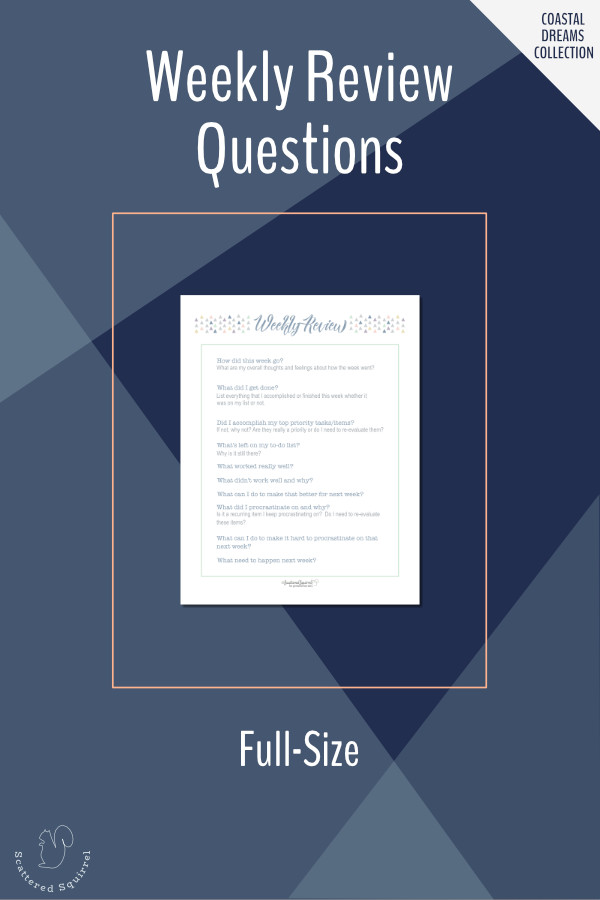
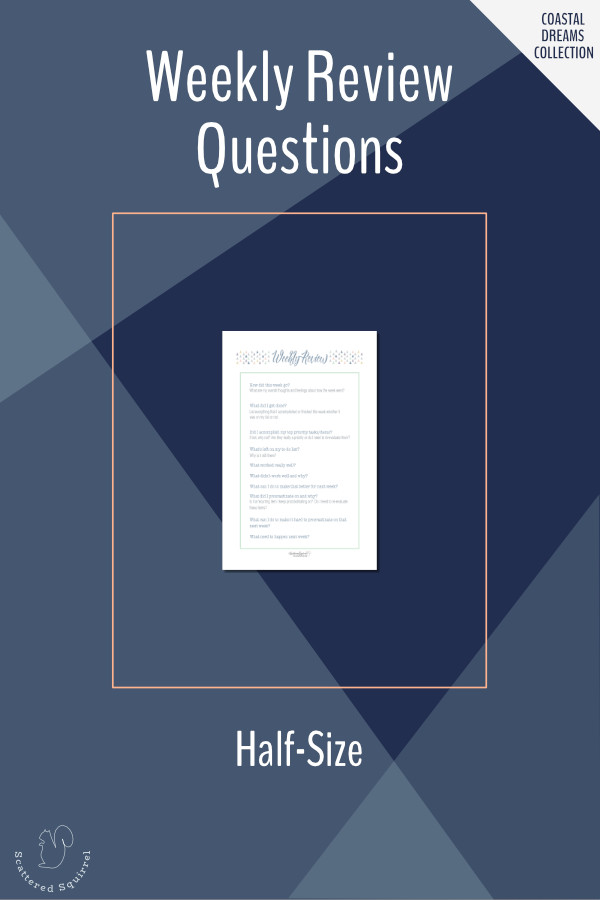
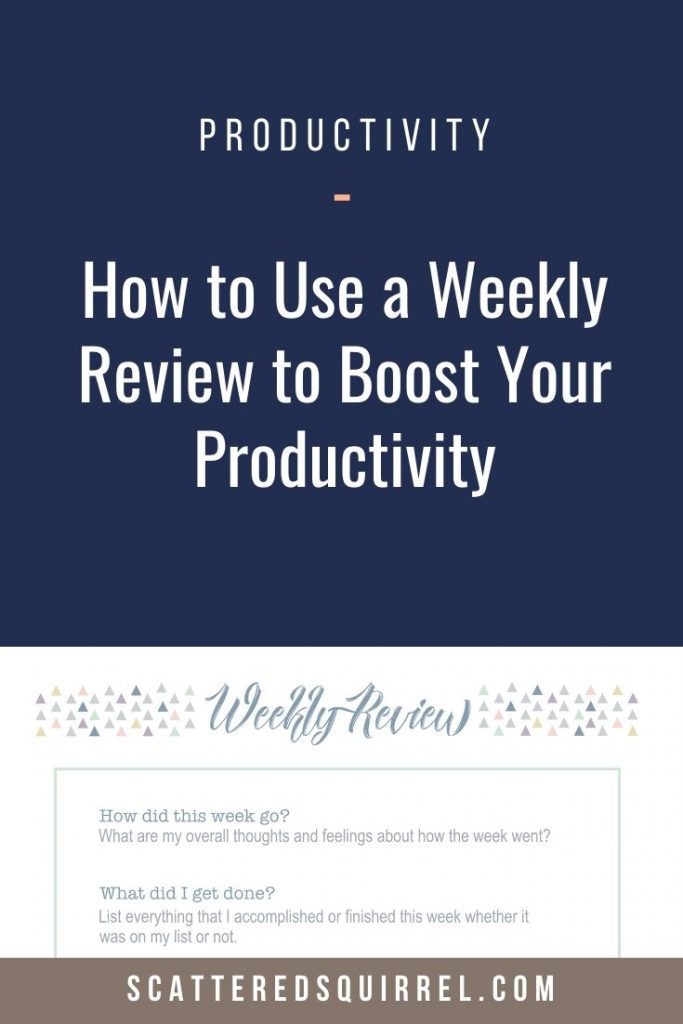
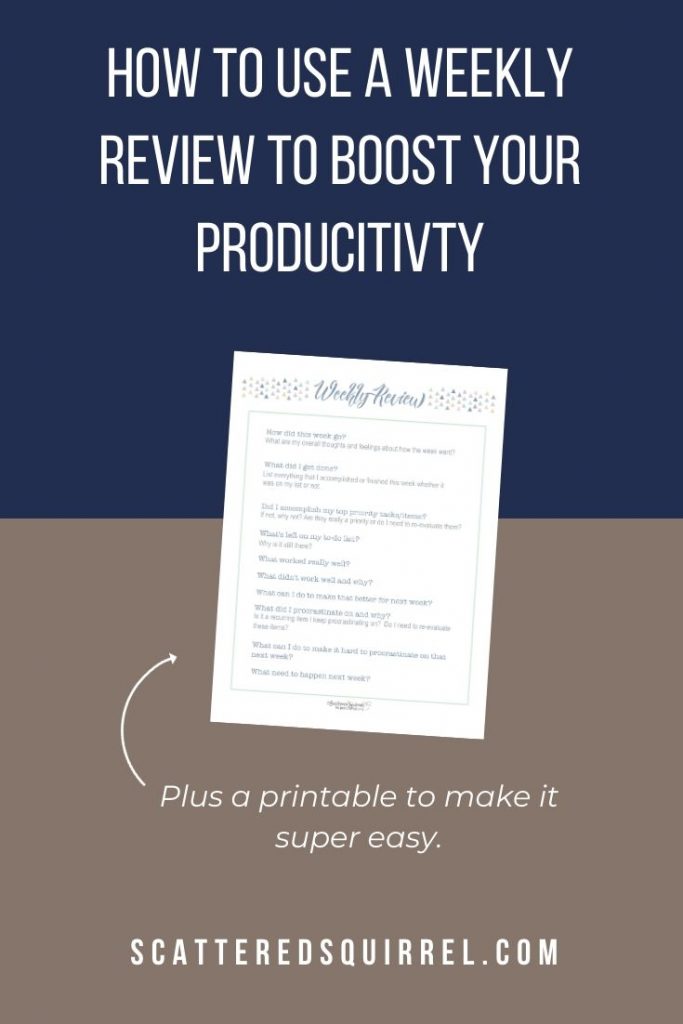
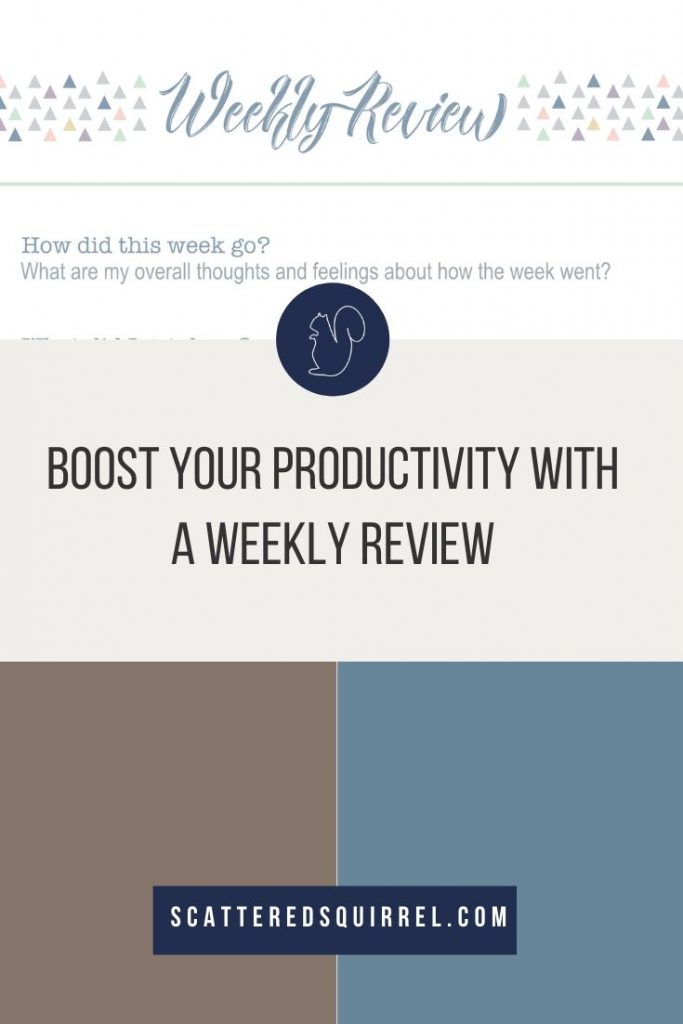

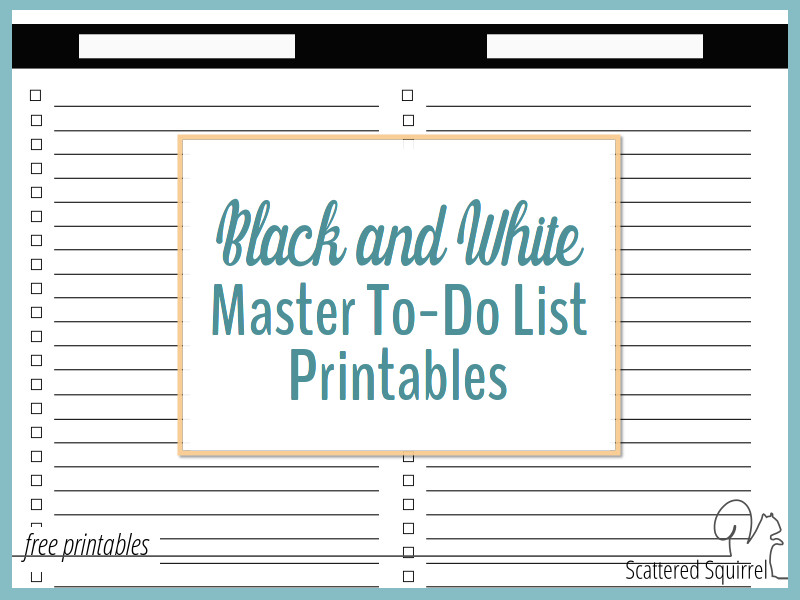
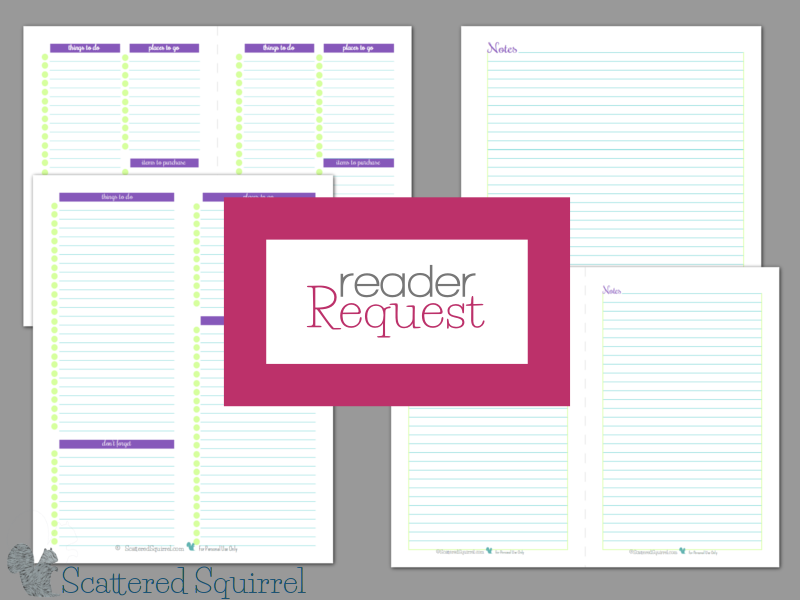


One Comment